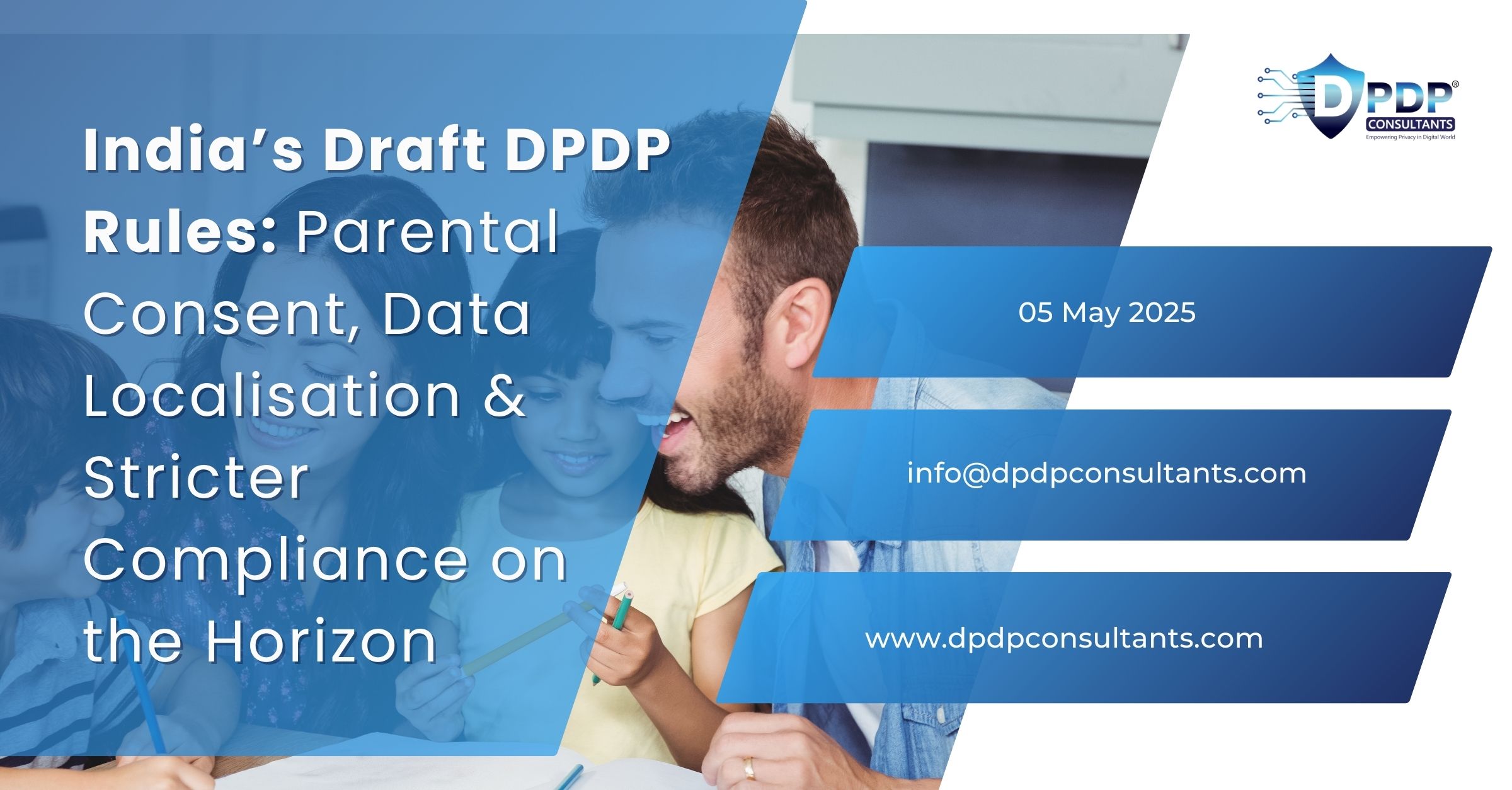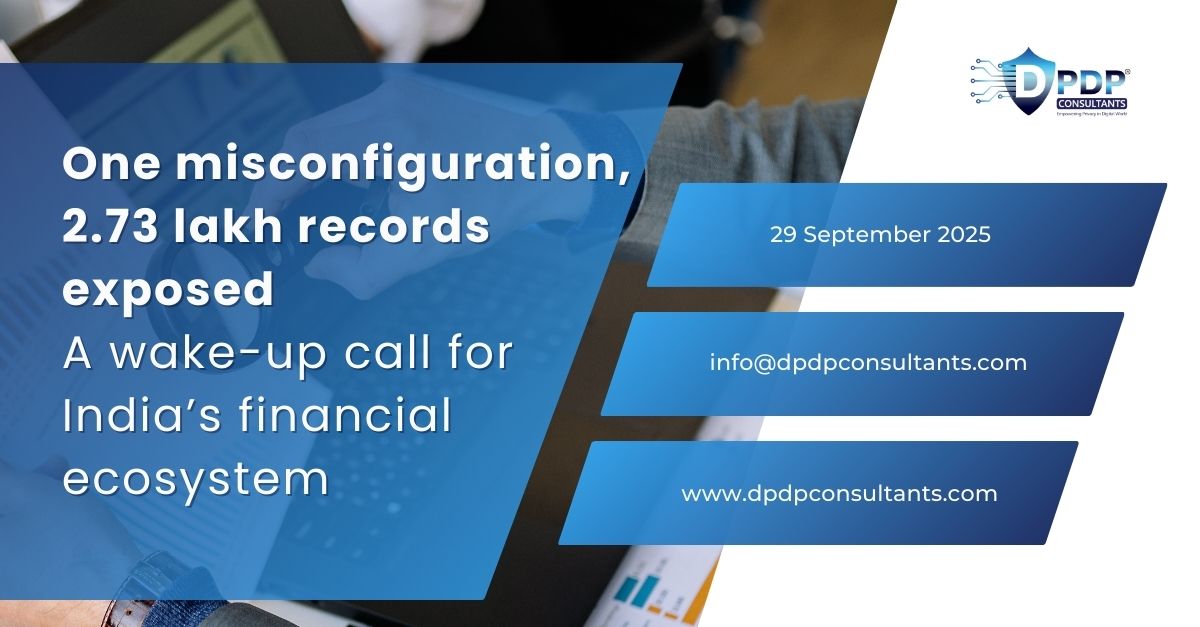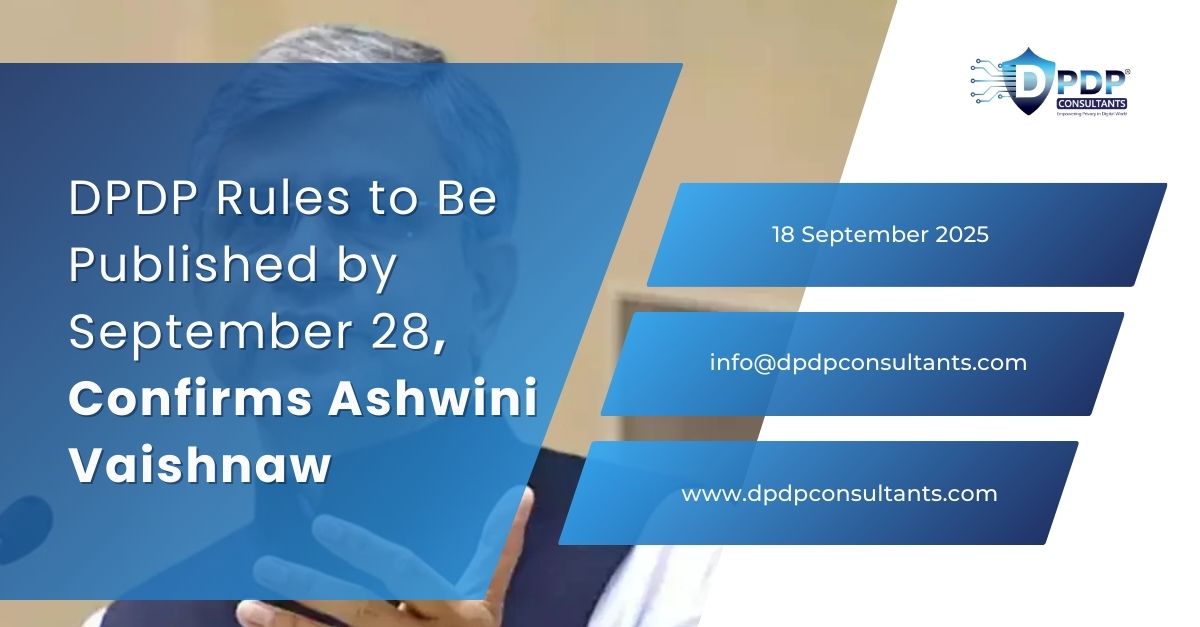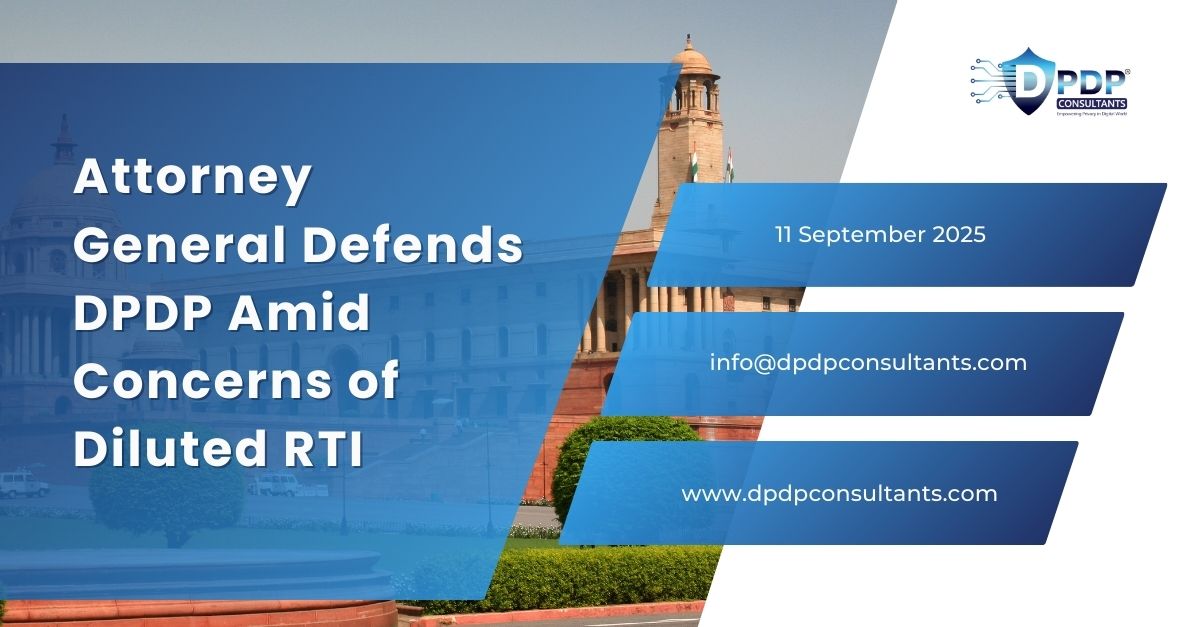India has taken
another major step in operationalizing the Digital Personal Data Protection
Act, 2023 (DPDP Act) with the release of the draft Digital Personal Data
Protection Rules. These rules are intended to flesh out the framework set
by the Act and provide the operational backbone for compliance, enforcement,
and user protection in the digital ecosystem.
One of the most
headline-grabbing proposals in the draft rules is the requirement for
mandatory, verifiable parental consent for processing children’s
data—marking a significant move in safeguarding minors' digital presence.
Key
Highlights of the Draft Rules
1. Mandatory
Parental Consent for Children’s Data
The draft rules
make it clear: if a child (defined under the DPDP Act as an individual under
18) is to be onboarded to an online platform or service, verifiable consent
from a parent or guardian must first be obtained.
“A Data
Fiduciary shall adopt appropriate technical and organisational measures to
ensure that verifiable consent of the parent is obtained before the processing
of any personal data of a child,”
the draft rules state.
This means any
entity—whether a gaming platform, an edtech app, or a social media network—must
confirm that:
- The parent or guardian is an
identifiable adult, and
- Their identity and age are
validated through documents or tokens issued by government-authorized
identity verification services.
A suggested
method includes the use of India’s Digital Locker platform, which could
serve as a verification bridge. Parents may voluntarily submit identity proofs
through such systems to confirm their status and relationship with the child.
This provision
is seen as critical to curbing unauthorized access to digital platforms by
minors and ensuring greater accountability from online service providers.
2. Consent
Managers: The Gatekeepers of Digital Consent
Another pillar
introduced in the draft rules is the formal recognition of Consent Managers.
Consent
Managers will be licensed entities entrusted with managing user consents,
acting as intermediaries between Data Fiduciaries and Data Principals
(individuals whose data is processed). They will ensure that consent is:
- Informed,
- Specific,
- Revocable, and
- Documented for compliance purposes.
Entities can
only process data after consent has been given through these officially
appointed Consent Managers, adding a critical layer of transparency and
accountability.
This aligns
with the DPDP Act’s broader vision of user empowerment and digital agency.
3. Data
Localisation: New Restrictions in the Works
Perhaps the
most surprising element of the draft rules is the hint at potential data
localisation mandates, especially for Significant Data Fiduciaries
(SDFs).
While the DPDP
Act generally allows cross-border data flows—barring transfers to explicitly
blacklisted jurisdictions—the draft rules empower the central government to:
- Identify specific categories of
personal data, and
- Prohibit or restrict their transfer
outside India,
based on recommendations from a government-constituted committee.
This move
suggests that sensitive personal or strategic data—such as health data,
financial information, or data related to critical infrastructure—could soon be
subjected to localisation requirements.
The text reads:
“A
Significant Data Fiduciary shall undertake measures to ensure that personal
data specified by the Central Government... is not transferred outside the
territory of India.”
This new layer
of regulation will likely have a major impact on cloud service providers,
global platforms, and Indian companies relying on offshore processing centers.
Understanding
Significant Data Fiduciaries (SDFs)
The draft rules
reemphasize obligations for Significant Data Fiduciaries, which are
determined by factors like:
- The volume and sensitivity of data
processed,
- Risk to individuals’ rights,
- Impact on sovereignty, security,
and public order.
Obligations
for SDFs include:
- Annual Data Protection Impact Assessments
(DPIA).
- Annual independent data audits.
- Algorithmic accountability—ensuring that AI or software used
for data processing does not risk individual rights.
- Enhanced due diligence in
cross-border transfers and third-party data sharing.
For major tech
players, telcos, e-commerce companies, and financial institutions, this marks a
clear compliance escalation.
Cross-Border
Data Transfers: Conditional Permissions
Another
critical point of regulation deals with how personal data is handled outside of
Indian borders.
As per the
draft rules:
“Transfer to
any country or territory outside India of personal data processed by a Data
Fiduciary shall meet such requirements as the Central Government may specify…”
This implies
that even for non-SDFs, cross-border data transfers will be subject to
case-by-case government regulations—potentially requiring:
- Prior approvals,
- Specific contractual clauses,
- Certifications, or
- Data processing agreements with
foreign entities.
This provision
tightens India’s hold on international data transfers and could affect BPOs,
SaaS providers, and multinational corporations operating in India.
Expert Take:
Industry Voices
Legal experts
and industry stakeholders have taken note of the nuanced but powerful shifts
proposed in the draft rules.
Shreya Suri, Partner at IndusLaw, remarked:
“An
interesting development is the potential obligations for SDFs regarding
cross-border data sharing. The hint at additional oversight and localisation
adds a new dimension that stakeholders must now factor into compliance
planning.”
Others see the
introduction of Consent Managers and parental verification as long-awaited
steps toward data maturity and user-centric governance.
What Comes
Next?
The draft rules are
currently open for public consultation, and industry stakeholders are
expected to submit feedback over the coming weeks.
The key
takeaways for organizations are:
- Start preparing compliance
frameworks for
consent verification and age validation.
- Map cross-border data flows and identify potential
vulnerabilities under new localisation rules.
- Assess readiness for SDF
obligations if
processing large or sensitive datasets.
- Engage with Consent Managers and assess integration
requirements.
India’s data
protection regime is evolving swiftly—and these draft rules signal the
government's intention to enforce more structured, transparent, and
responsible data practices across the digital ecosystem.
Final
Thoughts
The draft DPDP
Rules are more than an administrative formality—they represent the operational
DNA of India’s data protection law. For companies, this is not just about
compliance—it’s about building trust, accountability, and ethical data
ecosystems.
For startups,
scaleups, MNCs, and data fiduciaries of all sizes: now is the time to
re-evaluate internal practices, refresh privacy policies, and anticipate
the compliance curve.





